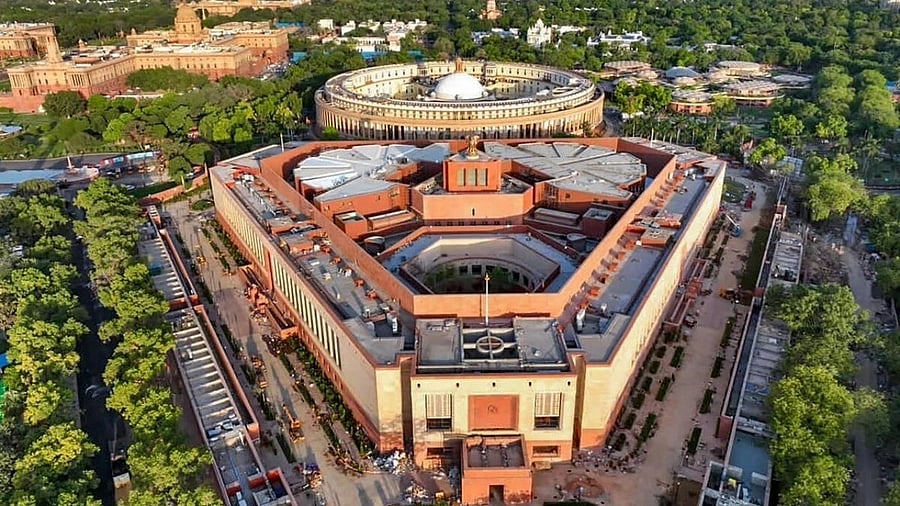
File photo of New Parliament building.
Credit: PTI Photo
With members of parliament moving to the new Parliament House, a new beginning has been made in the country’s parliamentary history.
The iconic old Parliament House, which was witness to history and saw some of the most important events in the last century, will itself be history now. Prime Minister Narendra Modi described the new parliament as the symbol of the country’s new vision and aspirations, just as the old building would remain “a source of inspiration” and “a place of pilgrimage” in the future.
In an emotional speech, he rose above partisanship and paid tributes to his predecessors from Jawaharlal Nehru to Manmohan Singh and others who contributed to the making of India’s parliamentary democracy.
He mentioned Nehru’s “Tryst with destiny” speech and said, “the echo of Pandit Nehru’s ‘at the stroke of midnight’ (speech) in this parliament will continue to inspire us.” He also observed that over the years, parliament had become more inclusive.
Leader of the Opposition Mallikarjun Kharge recalled Nehru's contribution to Indian democracy, saying his outlook was inclusive as he took the Opposition along and had laid the foundation of the Constitution and parliamentary democracy.
Opposition members had the grouse that their voices are not listened to in parliament. There is truth in the complaint, as the proceedings of parliament in the last many years have shown.
The Prime Minister said parliament has seen “parivar bhav” (family feeling), despite disputes and differences. But this sense of family has waned and the polarisations in politics and society have divided parliament, too. It has been less effective, and rancour and acrimony have replaced debates. Legislative work has dwindled, and bills are passed without discussion. There has been a breakdown of trust between the government and the Opposition.
The Prime Minister put his best foot forward and expressed the best sentiments about the past, the present and the future. He was all grace and conciliation, as the occasion demanded, and said that it was time to start the journey “with new self-belief”.
It is for both the government and the Opposition to be equally committed to the new belief and to the need to strengthen parliament and democracy. It is appropriate that the proceedings of the new parliament will start with the Women’s Reservation Bill which has been introduced. The bill, if it becomes the law, will lead to a more inclusive and representative, and hopefully less acrimonious, parliament.
Parliament is not the building it houses. It is what it does, the way it functions, the words that are spoken there, and the ideas and ideals, the sentiments and attitudes that go into it. It must foster goodwill and earn the trust and respect of the people.
